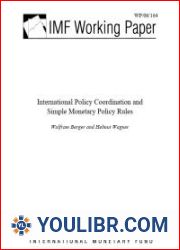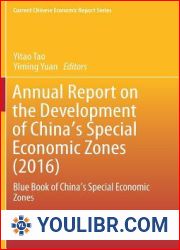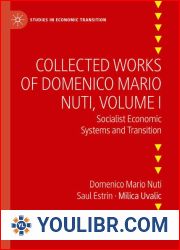
BOOKS - Institutional trust and economic policy Lessons from the history of the Euro:...

Institutional trust and economic policy Lessons from the history of the Euro: Lessons from the history of the Euro
Author: Dora Gyorffy
Year: June 1, 2013
Format: PDF
File size: PDF 1.3 MB
Language: English

Year: June 1, 2013
Format: PDF
File size: PDF 1.3 MB
Language: English

The book Institutional Trust and Economic Policy: Lessons from the History of the Euro, written by Dora Gyorffy, provides a comprehensive analysis of the role of trust in shaping economic outcomes and its significance in understanding the subprime crisis in the European Union. The author argues that trust plays a crucial role in determining the success or failure of economic policies and that it is essential to understand the mechanisms that drive trust in order to create a stable and prosperous economy. The book begins by examining the theoretical debates surrounding the concept of trust and its relevance to economic outcomes. The author explores how trust influences economic decision-making and how it can lead to either virtuous or vicious cycles of compliance. This section sets the stage for the rest of the book, providing a solid foundation for the reader to understand the arguments that follow. Next, the author delves into the specific case studies of the subprime crisis in the European Union, using insights from PostKeynesian, Austrian, and new institutional economics to analyze the events leading up to and during the crisis. The author demonstrates how a lack of trust among economic agents, such as banks and governments, contributed to the crisis and how this lack of trust continues to affect the region's economic recovery.
В книге Institutional Trust and Economic Policy: ssons from the History of the Euro (Институциональное доверие и экономическая политика: уроки из истории евро), написанной Дорой Дьорффи, представлен всесторонний анализ роли доверия в формировании экономических результатов и его значения в понимании субстандартного кризиса в Европейском Союзе. Автор утверждает, что доверие играет решающую роль в определении успеха или провала экономической политики и что важно понимать механизмы, которые стимулируют доверие для создания стабильной и процветающей экономики. Книга начинается с изучения теоретических дебатов вокруг концепции доверия и ее значимости для экономических результатов. Автор исследует, как доверие влияет на принятие экономических решений и как оно может привести к добродетельным или порочным кругам соответствия. Этот раздел закладывает основу для остальной части книги, обеспечивая прочную основу для понимания читателем следующих аргументов. Затем автор углубляется в конкретные тематические исследования кризиса субстандартных кредитов в Европейском Союзе, используя идеи PostKeynesian, австрийской и новой институциональной экономики для анализа событий, приведших к кризису и во время него. Автор демонстрирует, как отсутствие доверия между экономическими агентами, такими как банки и правительства, способствовало кризису и как это отсутствие доверия продолжает влиять на восстановление экономики региона.
livre La confiance institutionnelle et les politiques économiques, écrit par Dora Diorffi, présente une analyse complète du rôle de la confiance dans la formation des résultats économiques et de son importance dans la compréhension de la crise des sous-normes dans l'Union européenne. L'auteur affirme que la confiance joue un rôle crucial dans la détermination du succès ou de l'échec des politiques économiques et qu'il est important de comprendre les mécanismes qui stimulent la confiance pour créer une économie stable et prospère. livre commence par un débat théorique sur la notion de confiance et son importance pour les résultats économiques. L'auteur explore comment la confiance affecte la prise de décisions économiques et comment elle peut conduire à des cercles vertueux ou vicieux de conformité. Cette section jette les bases du reste du livre, fournissant une base solide pour que le lecteur comprenne les arguments suivants. L'auteur approfondit ensuite des études de cas spécifiques sur la crise des subprimes dans l'Union européenne, en utilisant les idées de PostKeynesian, de l'Autriche et de la nouvelle économie institutionnelle pour analyser les événements qui ont conduit à la crise et au cours de celle-ci. L'auteur montre comment le manque de confiance entre les agents économiques, tels que les banques et les gouvernements, a contribué à la crise et comment ce manque de confiance continue d'influencer la reprise économique de la région.
libro Confianza Institucional y Política Económica: ssons from the History of the Euro (Confianza institucional y política económica: lecciones de la historia del euro), escrito por Dora Diorffy, presenta un análisis exhaustivo del papel de la confianza en la generación de resultados económicos y su importancia en la comprensión crisis subprime en la Unión Europea. autor sostiene que la confianza juega un papel crucial en la determinación del éxito o fracaso de las políticas económicas y que es importante entender los mecanismos que estimulan la confianza para crear una economía estable y próspera. libro comienza estudiando el debate teórico en torno al concepto de confianza y su importancia para los resultados económicos. autor explora cómo la confianza influye en la toma de decisiones económicas y cómo puede conducir a círculos virtuosos o viciosos de conformidad. Esta sección sienta las bases para el resto del libro, proporcionando una base sólida para que el lector comprenda los siguientes argumentos. A continuación, el autor profundiza en los estudios de casos específicos de la crisis del crédito subprime en la Unión Europea, utilizando las ideas de PostKeynesian, la economía institucional austriaca y la nueva, para analizar los acontecimientos que condujeron a la crisis y durante ella. autor demuestra cómo la falta de confianza entre agentes económicos como bancos y gobiernos ha contribuido a la crisis y cómo esta falta de confianza sigue afectando a la recuperación económica de la región.
Il libro «ssons from the History of the Euro», scritto da Dora Diorffi, fornisce un'analisi completa del ruolo della fiducia nella formazione dei risultati economici e del suo significato nella comprensione della crisi subprime dell'Unione europea. L'autore sostiene che la fiducia è fondamentale per determinare il successo o il fallimento della politica economica e che è importante comprendere i meccanismi che stimolano la fiducia per creare un'economia stabile e prospera. Il libro inizia studiando il dibattito teorico sul concetto di fiducia e la sua importanza per i risultati economici. L'autore indaga come la fiducia influisce sulle decisioni economiche e come può portare a circoli virtuosi o perversi di conformità. Questa sezione pone le basi per il resto del libro, fornendo una base solida per comprendere i seguenti argomenti. L'autore approfondisce poi gli studi di caso specifici sulla crisi dei prestiti subprime nell'Unione europea, utilizzando le idee di economia PostKeynesian, austriaca e nuova economia istituzionale per analizzare gli eventi che hanno portato alla crisi e durante essa. L'autore dimostra come la mancanza di fiducia tra gli agenti economici, come le banche e i governi, abbia contribuito alla crisi e come questa mancanza di fiducia continui a influenzare la ripresa economica della regione.
Das Buch Institutional Trust and Economic Policy: ssons from the History of the Euro (Institutionelles Vertrauen und Wirtschaftspolitik: hren aus der Geschichte des Euro) von Dora Diörffy bietet eine umfassende Analyse der Rolle des Vertrauens bei der Gestaltung wirtschaftlicher Ergebnisse und seiner Bedeutung für das Verständnis der Subprime-Krise in der Europäischen Union. Der Autor argumentiert, dass Vertrauen eine entscheidende Rolle bei der Bestimmung des Erfolgs oder Misserfolgs der Wirtschaftspolitik spielt und dass es wichtig ist, die Mechanismen zu verstehen, die Vertrauen fördern, um eine stabile und prosperierende Wirtschaft zu schaffen. Das Buch beginnt mit einer Untersuchung der theoretischen Debatte um das Konzept des Vertrauens und seiner Bedeutung für die wirtschaftlichen Ergebnisse. Der Autor untersucht, wie Vertrauen die wirtschaftliche Entscheidungsfindung beeinflusst und wie es zu tugendhaften oder bösartigen Compliance-Kreisen führen kann. Dieser Abschnitt legt den Grundstein für den Rest des Buches und bietet eine solide Grundlage für den ser, um die folgenden Argumente zu verstehen. Der Autor taucht dann in konkrete Fallstudien der Subprime-Krise in der Europäischen Union ein und nutzt die Erkenntnisse von PostKeynesian, der österreichischen und der neuen institutionellen Wirtschaft, um die Ereignisse zu analysieren, die zur Krise und während der Krise geführt haben. Der Autor zeigt, wie der Mangel an Vertrauen zwischen Wirtschaftsakteuren wie Banken und Regierungen zur Krise beigetragen hat und wie sich dieser Mangel an Vertrauen weiterhin auf die wirtschaftliche Erholung der Region auswirkt.
הספר Institutional Trust and Economic Policy: ssons of the History of the Euro, שנכתב על ידי דורה גיורפי, מספק ניתוח מקיף של תפקיד האמון בעיצוב תוצאות כלכליות והשלכותיה בהבנת משבר הסאב-פריים באיחוד האירופי. המחבר טוען כי האמון ממלא תפקיד קריטי בקביעת ההצלחה או הכישלון של המדיניות הכלכלית וכי חשוב להבין את המנגנונים המניעים את האמון ביצירת כלכלה יציבה ומשגשגת. הספר מתחיל בבדיקת הוויכוח התיאורטי סביב מושג האמון והרלוונטיות שלו לתוצאות הכלכליות. המחבר בוחן כיצד אמון משפיע על קבלת החלטות כלכליות וכיצד הוא יכול להוביל למעגלים מוסריים או אכזריים של קונפורמיות. סעיף זה מניח את היסודות לשאר הספר ומספק לקורא יסוד מוצק להבנת הטיעונים הבאים. הכותב מתעמק אז בחקר מקרים ספציפיים של משבר האשראי הסאבפריים באיחוד האירופי, באמצעות תובנות מפוסטקיינסיאן, הכלכלה המוסדית האוסטרית והחדשה כדי לנתח את האירועים שקדמו למשבר. המחבר מדגים כיצד חוסר אמון בין גורמים כלכליים כמו בנקים וממשלות תרם למשבר וכיצד חוסר אמון זה ממשיך להשפיע על ההתאוששות הכלכלית של האזור.''
Kurumsal Güven ve Ekonomik Politika: Dora Gyorffie tarafından yazılan Euro'nun Tarihinden kesitler, güvenin ekonomik sonuçları şekillendirmedeki rolünün ve Avrupa Birliği'ndeki subprime krizini anlamadaki etkilerinin kapsamlı bir analizini sunmaktadır. Yazar, ekonomi politikalarının başarısını veya başarısızlığını belirlemede güvenin kritik bir rol oynadığını ve istikrarlı ve müreffeh bir ekonomi yaratmak için güveni yönlendiren mekanizmaları anlamanın önemli olduğunu savunuyor. Kitap, güven kavramını ve ekonomik sonuçlarla ilişkisini çevreleyen teorik tartışmaları inceleyerek başlıyor. Yazar, güvenin ekonomik karar vermeyi nasıl etkilediğini ve erdemli veya kısır uygunluk döngülerine nasıl yol açabileceğini araştırıyor. Bu bölüm, kitabın geri kalanı için zemin hazırlar ve okuyucunun aşağıdaki argümanları anlaması için sağlam bir temel sağlar. Yazar daha sonra, krize yol açan olayları analiz etmek için PostKeynesian, Avusturya ve Yeni Kurumsal Ekonomi'nin görüşlerini kullanarak Avrupa Birliği'ndeki subprime kredi krizine ilişkin özel vaka incelemelerine girer. Yazar, bankalar ve hükümetler gibi ekonomik aktörler arasındaki güven eksikliğinin krize nasıl katkıda bulunduğunu ve bu güven eksikliğinin bölgenin ekonomik toparlanmasını nasıl etkilemeye devam ettiğini göstermektedir.
الثقة المؤسسية والسياسة الاقتصادية: الأبناء من تاريخ اليورو، بقلم دورا جيورفي، يقدم تحليلاً شاملاً لدور الثقة في تشكيل النتائج الاقتصادية وآثارها في فهم أزمة الرهن العقاري العالي في الاتحاد الأوروبي. يجادل المؤلف بأن الثقة تلعب دورًا حاسمًا في تحديد نجاح أو فشل السياسات الاقتصادية وأنه من المهم فهم الآليات التي تدفع الثقة لخلق اقتصاد مستقر ومزدهر. يبدأ الكتاب بدراسة النقاش النظري المحيط بمفهوم الثقة وصلته بالنتائج الاقتصادية. يستكشف المؤلف كيف تؤثر الثقة على صنع القرار الاقتصادي وكيف يمكن أن تؤدي إلى حلقات فاضلة أو مفرغة من الامتثال. يضع هذا القسم الأساس لبقية الكتاب، مما يوفر أساسًا صلبًا للقارئ لفهم الحجج التالية. ثم يتعمق المؤلف في دراسات حالة محددة لأزمة الائتمان عالية المخاطر في الاتحاد الأوروبي، باستخدام رؤى من PostKeynesian، والاقتصاد المؤسسي النمساوي والجديد لتحليل الأحداث التي أدت إلى الأزمة وأثناءها. يوضح المؤلف كيف ساهم انعدام الثقة بين الوكلاء الاقتصاديين مثل البنوك والحكومات في الأزمة وكيف أن انعدام الثقة هذا لا يزال يؤثر على الانتعاش الاقتصادي في المنطقة.
기관 신탁 및 경제 정책: Dora Gyorffie가 저술 한 유로 역사의 교훈은 경제 성과를 형성하는 데있어 신뢰의 역할과 유럽 연합의 서브 프라임 위기를 이해하는 데 미치는 영향에 대한 포괄적 인 분석을 제공합니다. 저자는 신뢰가 경제 정책의 성공 또는 실패를 결정하는 데 중요한 역할을하며 안정적이고 번영하는 경제를 창출하려는 신뢰를 이해하는 것이 중요하다고 주장합니다. 이 책은 신뢰 개념과 경제 성과와의 관련성을 둘러싼 이론적 논쟁을 조사하는 것으로 시작됩니다. 저자는 신뢰가 경제 의사 결정에 어떤 영향을 미치는지, 그리고 그것이 어떻게 선순환이나 악순환의 순응으로 이어질 수 있는지 탐구 이 섹션은 나머지 책의 토대를 마련하여 독자가 다음 주장을 이해할 수있는 확실한 토대를 제공합니다. 그런 다음 저자는 PostKeynesian, 오스트리아 및 New Institutional Economics의 통찰력을 사용하여 위기로 이어지는 사건을 분석하여 유럽 연합의 서브 프라임 신용 위기에 대한 특정 사례 연구를 탐구합니다. 저자는 은행과 정부와 같은 경제 에이전트 간의 신뢰 부족이 위기에 어떻게 기여했는지, 그리고 이러한 신뢰 부족이 지역의 경제 회복에 어떤 영향을 미치는지 보여줍니다.
著書Institutional Trust and Economic Policy: Dora Gyorffieによって書かれたユーロの歴史からの教訓は、経済的成果の形成における信頼の役割と、欧州連合のサブプライム危機を理解する上でのその意味を包括的に分析する。著者は、信頼は経済政策の成功または失敗を決定する上で重要な役割を果たしており、安定した繁栄した経済を生み出すために信頼を促進するメカニズムを理解することが重要であると主張している。本書は、信頼の概念と経済的成果との関連性をめぐる理論的議論を検討することから始まる。著者は、信頼が経済的意思決定にどのような影響を及ぼすのか、そしてそれがどのように善意または悪循環につながるのかを探っています。このセクションでは、本の残りの部分の基礎を築き、読者が次の議論を理解するための確かな基礎を提供します。著者は、その後、欧州連合におけるサブプライムクレジット危機の具体的なケーススタディを掘り下げ、PostKeynesian、 AustrianおよびNew Institutional Economicsの洞察を使用して、危機に至るまでの出来事を分析します。著者は、銀行や政府などの経済主体間の信頼の欠如が危機にどのように貢献したか、そしてこの信頼の欠如が地域の経済回復にどのように影響し続けているかを示しています。
《機構信任和經濟政策:歐洲歷史的課程》(機構信任和經濟政策:從歐元歷史中汲取的經驗教訓),由Doroy Diorffi撰寫,全面分析了信任在創造經濟成果方面的作用及其在理解歐洲聯盟次級危機方面的重要性。作者認為,信任在確定經濟政策的成功或失敗中起著至關重要的作用,理解激勵信任以建立穩定和繁榮經濟的機制至關重要。本書首先探討了圍繞信任概念及其對經濟成果的重要性的理論辯論。作者探討了信任如何影響經濟決策,以及它如何導致良性或惡性合規循環。本節為本書的其余部分奠定了基礎,為讀者理解以下論點提供了堅實的基礎。然後,作者利用PostKeynesian,奧地利和新體制經濟學的思想,對導致危機及其期間的事件進行了分析,從而深入研究了歐盟次級貸款危機的具體案例研究。作者展示了銀行和政府等經濟代理人之間缺乏信任如何導致危機,以及這種缺乏信任如何繼續影響該地區經濟的復蘇。








 49
49  3 TON
3 TON








































